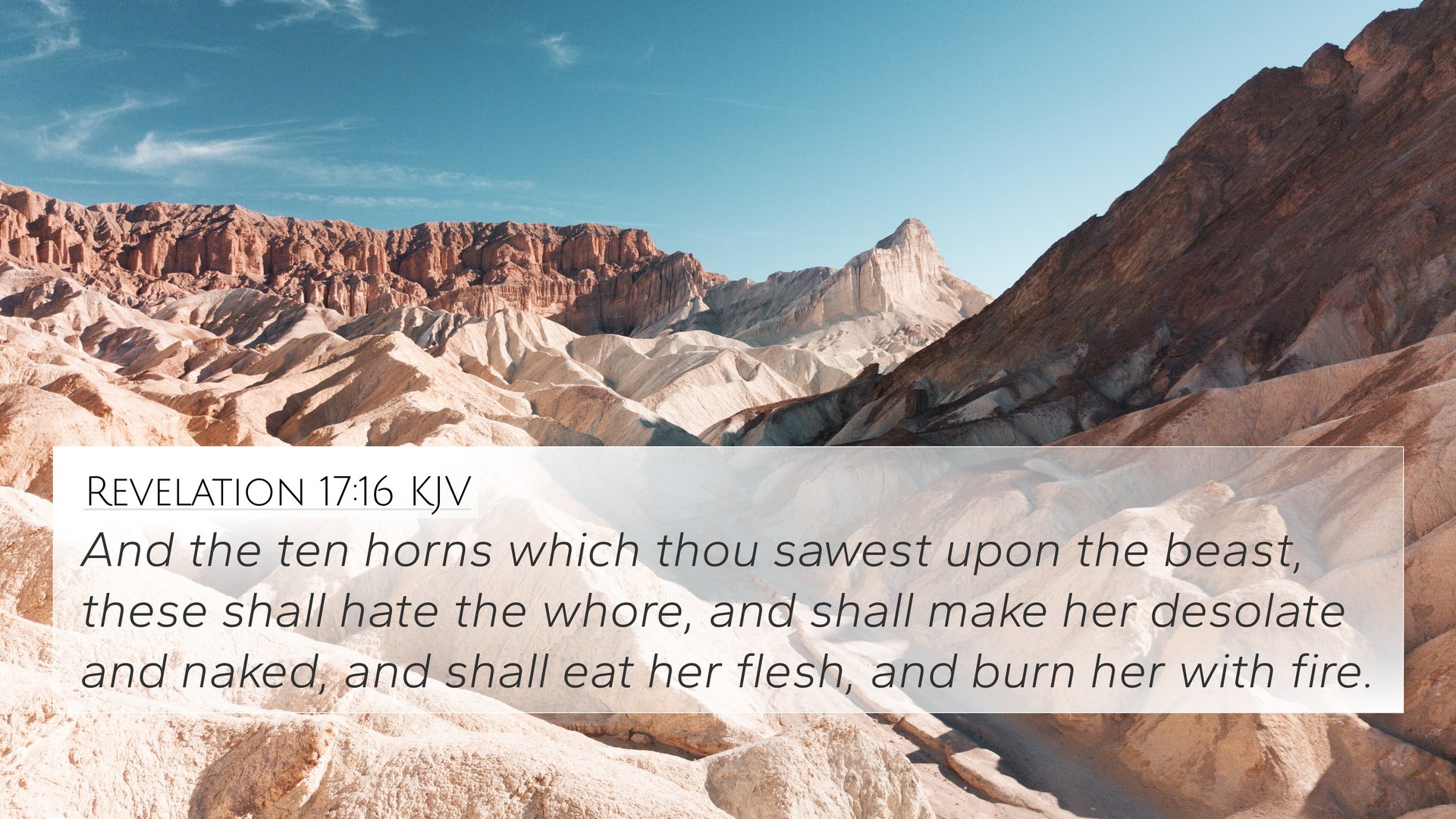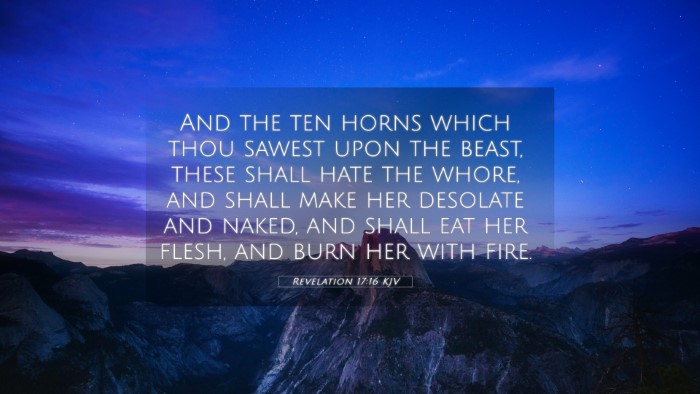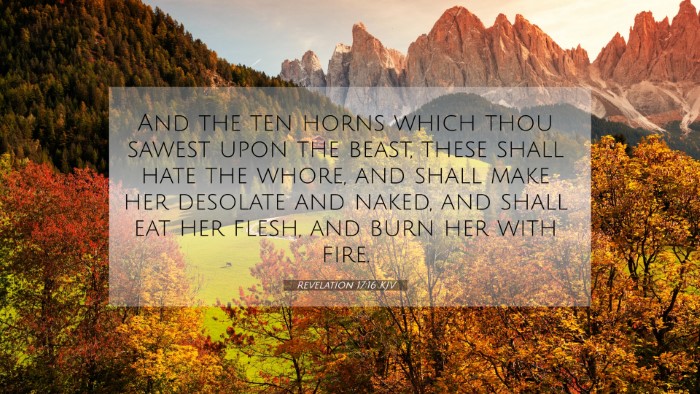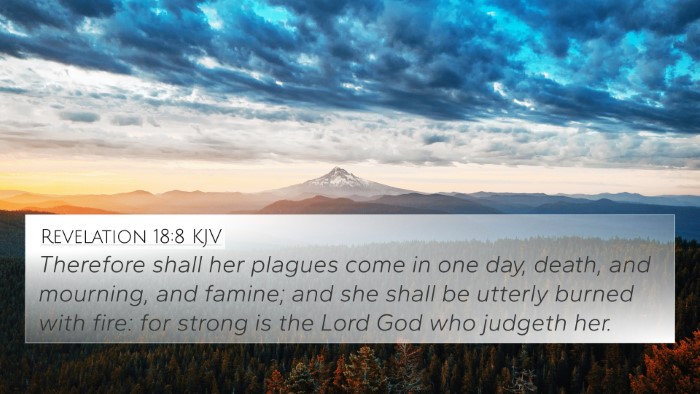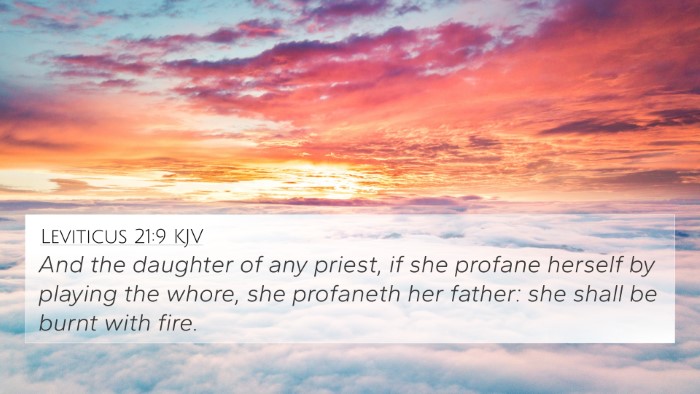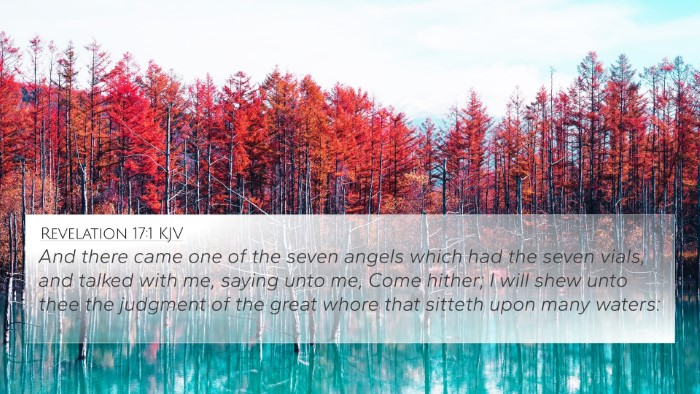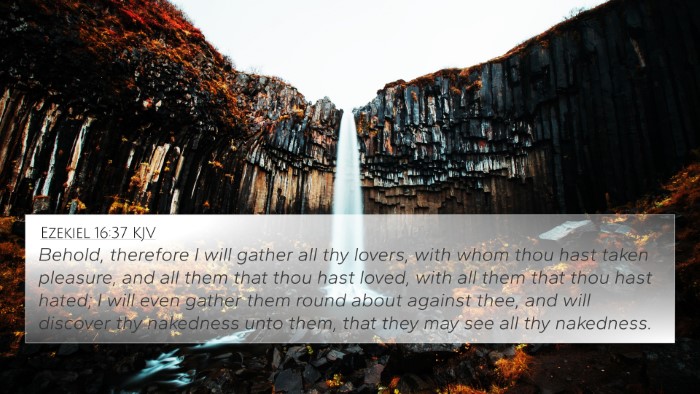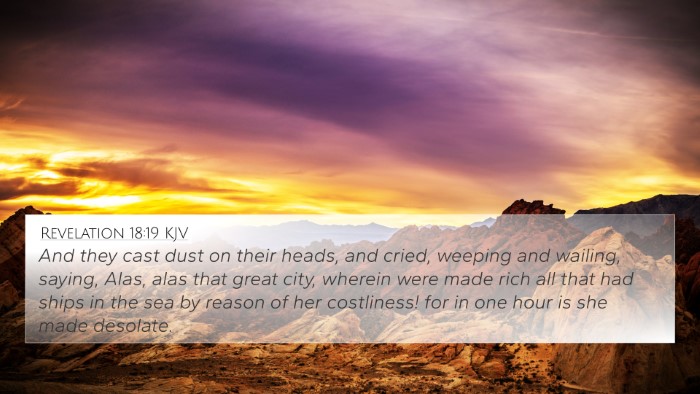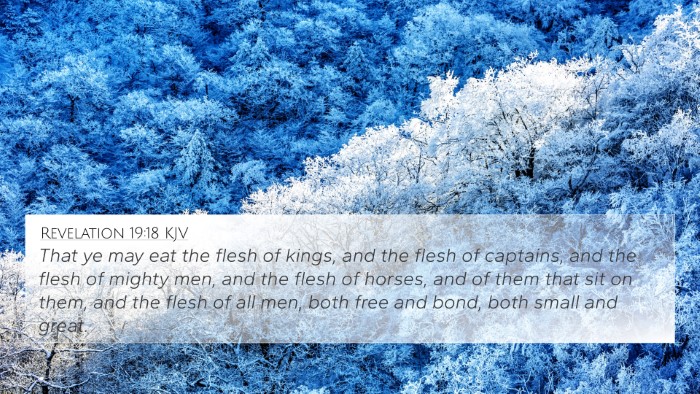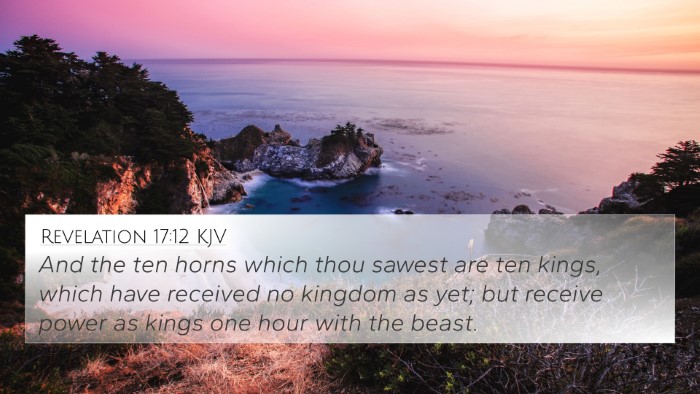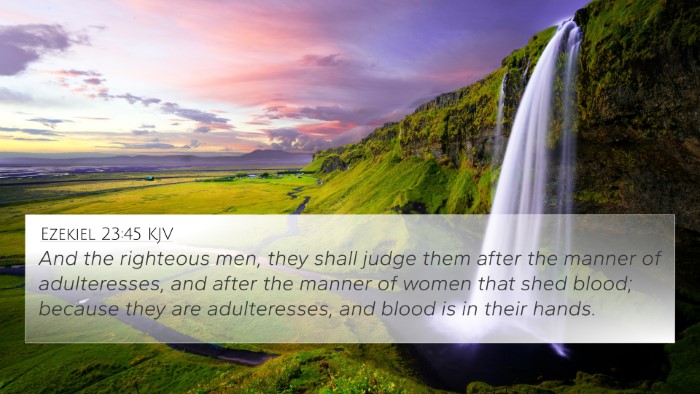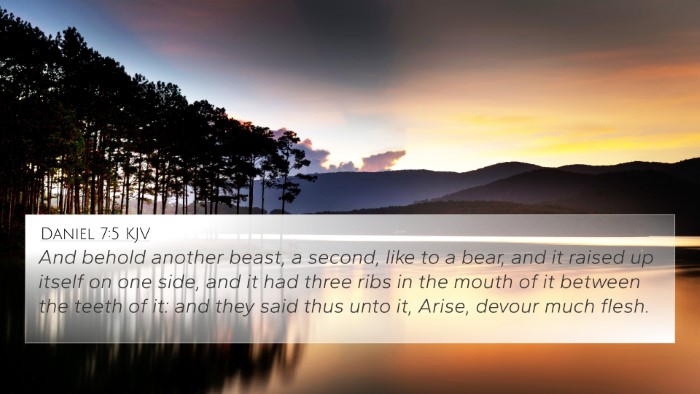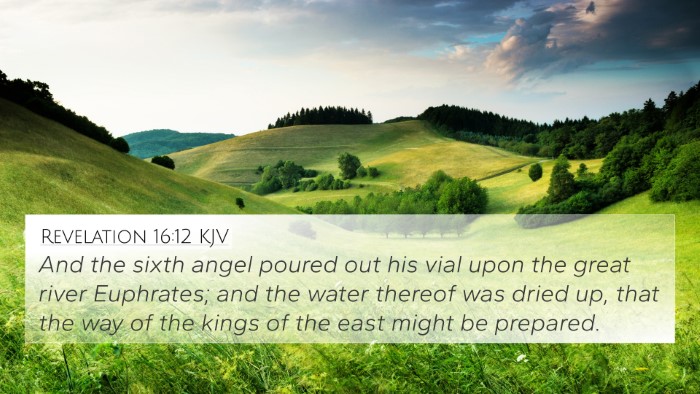Understanding Revelation 17:16: A Comprehensive Analysis
Revelation 17:16 states: "And the ten horns which you saw upon the beast, these shall hate the whore, and shall make her desolate and naked, and shall eat her flesh, and burn her with fire."
This verse depicts the violent opposition the ten horns, symbolizing ten kingdoms or rulers, will have against the figure of the 'whore.' These elements, rich in symbolism, require exploration through cross-referencing and Biblical commentary to deepen understanding.
Exegesis Through Commentaries
-
Matthew Henry's Commentary:
Henry interprets the 'whore' as representing false religion or possibly the Roman Catholic Church, emphasizing how worldly powers ultimately turn against such institutions. The destruction denotes the end of false teachings and the return to divine truth.
-
Albert Barnes' Notes on the Bible:
Barnes elaborates on the political aspect of the verse, suggesting these 'ten horns' are aligned with the beast and will manifest their true nature of destruction. He indicates that this illustrates the internal conflicts within political systems when religious entities threaten their power.
-
Adam Clarke's Commentary:
Clarke focuses on the implications of jealousy and betrayal among kingdoms. The 'whore' suggests a seducer, implying that the unholy alliances formed for power will ultimately lead to their undoing, showcasing the fragility of human constructs in the face of divine judgment.
Thematic Connections and Bible Verse Cross-References
Insights gained from Revelation 17:16 can be enhanced through various cross-references to other Bible verses, establishing broader themes. Here are notable connections within the Scriptures that resonate with this verse:
Key Cross-References
- Revelation 18:7 - Highlights the pride of the whore and her eventual downfall.
- Daniel 7:24-25 - Discusses powers rising and falling, emphasizing the inevitable turn against falsehood.
- Revelation 13:1-4 - Introduces the beast, setting the stage for the dynamics in Revelation 17.
- Revelation 19:2 - Affirms God's judgment upon the whore, reinforcing themes of divine justice and retribution.
- Isaiah 47:10 - Provides a prophetic parallel of judgment against Babylon, an ancient symbol of vile corruption.
- Jeremiah 50:30 - Further discusses the desolation of destructive powers akin to those represented by the whore.
- 2 Thessalonians 2:3-4 - Talks about the 'man of sin' and apostasy, reflecting the themes of betrayal in spiritual contexts.
Exploring Inter-Biblical Dialogues
The relationships among these verses highlight a narrative thread that runs throughout Scripture, examining the dynamics of power, betrayal, and divine justice. As we engage in a comparative Bible verse analysis, we uncover patterns of spiritual themes that are relevant across different contexts and times.
Identifying Connections Between Testaments
By referencing the Old Testament, we find a rich backdrop for understanding the symbolic elements within Revelation. The prophetic books frequently depict the fate of those who oppose God, creating a tapestry of connecting themes. This serves as a guide for study and understanding.
Methodology for Cross-Referencing Biblical Texts
When engaging in a cross-referencing Bible study, one can utilize tools such as a Bible concordance or a Bible cross-reference guide. These resources empower readers to navigate connections and deepen their understanding of scripture.
Practical tips for cross-referencing include:
- Identify keywords in the primary verse to search related verses.
- Utilize thematic categorizations to link scriptures with similar messages.
- Engage in comparative studies to explore how themes resonate across different books of the Bible.
The Significance of Thematic Bible Verse Connections
Understanding Biblical themes through connecting verses enables a greater grasp of the overarching message of Scripture. Complex interactions among biblical narratives illustrate how they complement and occasionally contradict each other, yielding deeper insights into God’s plan and human history.
Conclusion
Revelation 17:16 serves as a potent reminder of the fragility of human systems built on falsehood and the inevitability of divine judgment. Through careful study and utilization of cross-references, believers can cultivate a more profound understanding of their faith and the truths presented in the Bible.
As we continue to explore the Bible's interconnectedness, we gain invaluable knowledge and insight into God’s Word, embracing the rich tapestry of God’s message throughout time.
